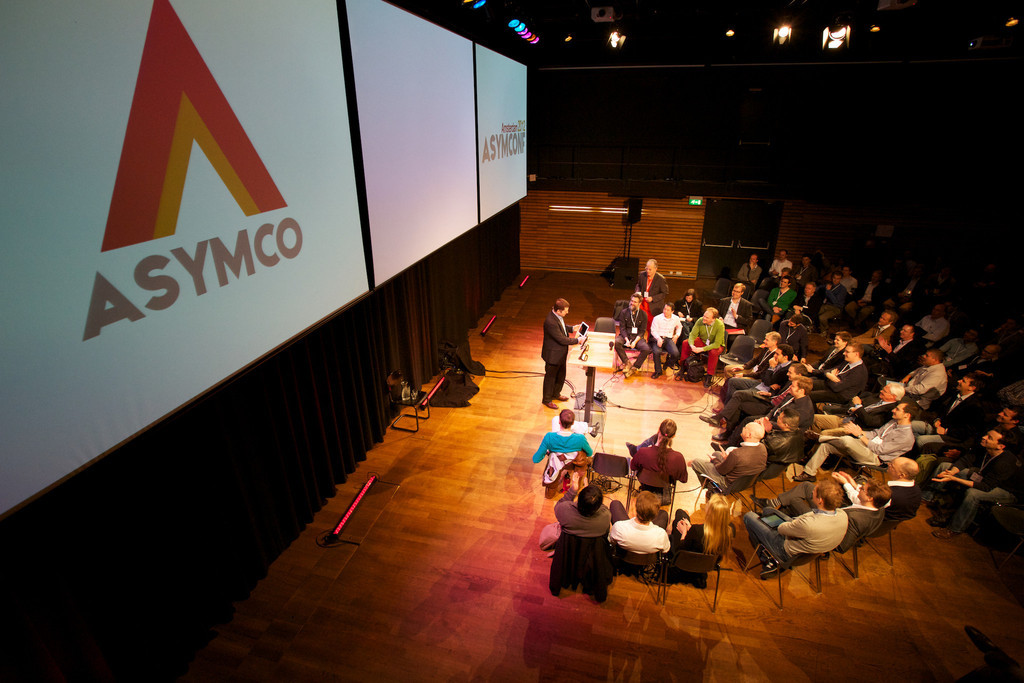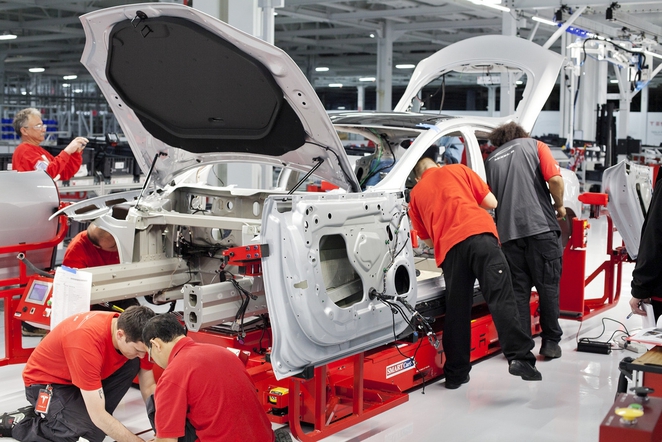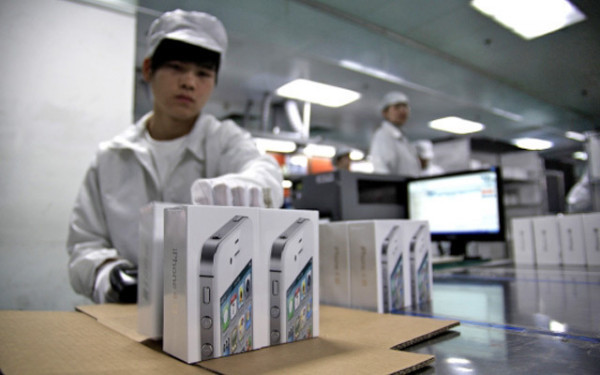About Apple, Google, Tesla and Asymmetric Competition: An Interview with Horace Dediu
 Horace Dediu (Horace Dediu) - an independent analyst Apple and the IT industry as a whole, the founder asymco.com - one of the most inspiring scientific research experiments in the field of IT, a leading Asymconf - version Asymco, broadcast live and not less well-known in world, and co-host of The Critical Path podcast .
Horace Dediu (Horace Dediu) - an independent analyst Apple and the IT industry as a whole, the founder asymco.com - one of the most inspiring scientific research experiments in the field of IT, a leading Asymconf - version Asymco, broadcast live and not less well-known in world, and co-host of The Critical Path podcast . Horace’s analytic reports, which he publishes on asymco.com on his blog, are widely recognized by the public ( Fortune magazine even called him the king among Apple analysts), and Horace is known for his speeches on Bloomberg TV , articles for Business Insider and Harvard Business, among other things. Review. Horace is also the creator of Asymcar , another experiment in applying the theory of disruptive innovation and the concept of jobs-to-be-done in the automotive industry.
About a year ago I had a chance to meet Horace personally, and not so long ago he agreed to give me an interview in which he talked about his projects, plans, attitude to the accumulation and dissemination of information in the modern world and the theory of "asymmetric competition" on the example of Google, Apple and Tesla.
So, Horace, I would like to start with your biography, although it’s easy to learn about some of its key facts from the materials that are in your articles on asymco.com, as well as from guest speeches, like an interviewthat you gave Dan Benjamin for The Pipeline podcast in 2011. I’m interested in this, because I’m trying to understand your story and motivation, way of thinking, everything that influenced the way you conduct and direct current projects. As far as I know, you come from a family that was involved in science, got an engineering degree in the States, worked in a research laboratory and among startups, then worked for eight years as an analyst at Nokia. Can you talk about how exactly your approach to research and business theory was formed during the years preceding the founding of three projects: Asymco, Asymconf and Asymcar?
Yes, it is - my story includes really long work in the technological field, and then in business analysis as an analyst at Nokia, but the main passion that accompanied me the first 20 years of my career was technology, so I worked in both areas - in research laboratories and in the field of information technology in New York, as well as in a bank; I worked in a startup, in fact, even in two startups that were involved in software development. Quite late, in the 90s or so, I took up this task - I tried to explain the operation of business mechanisms. It seems to me that my unique ... well, maybe not very unique, but still the contribution is to talk about business from a technological point of view - this is, in some way, an unusual combination.

Khoras does not only talk about business from a technological point of view - at his Asymconf conference, he uses three screens at once to demonstrate the visualization of his conclusions to the audience.
It seems that you have used this approach for many years, trying to study as much as possible each research area, for example, Apple which is interesting to me personally. With this approach, you need to have a share of fearlessness and carefully think through an understanding of how to work with the concept of asymmetry [in business]. Please tell us more about the concept of asymmetry that you are trying to convey to your readers and followers.
Yes that's right. So, perhaps, the main question I was trying to answer is this: why are some companies successful and others not. Today, according to the generally accepted theory, success or failure in business directly depends on the management technique, which was thought out either well or not. The problem is that the company can be successful for quite some time, and then become unsuccessful without changing the management strategy. How management turns from good to bad - that’s the question that remains to be answered.
All companies go through the stage ... famine, so to speak, then the stage of saturation begins. When they are hungry, they are more successful, but with the onset of satiety, they begin to make mistakes.
Thus, the question arises of other explanations [successes and failures of the business], for example: "companies can just get lucky or not lucky." Unfortunately, this is not a very reliable theory, but simply a matter of chance, so we will have to look for a more reasoned hypothesis. The theories that have been developed on the basis of the work of Clay Christensen boil down to the fact that psychology and the psychology of its management play a role in the development of the company. However, all companies go through the stage ... famine, so to speak, then the stage of saturation begins. When they are hungry, they are more successful, but with the onset of satiety, they begin to make mistakes. The reason for such changes is not so simple.
According to the asymmetry theory, “hungry” companies have an advantage over competing companies that have reached saturation. This is something that was laid down in the cultural code of our society hundreds more, if not thousands of years ago. Each of us has come across similar moralizing stories, even in the Bible you can read stories about asymmetry and success, the roots of which lie in the mismatch between the weak and the strong. I think that this is the real reason for the failure of influential companies that have all the resources and still lose to companies that have very few resources. When you start thinking about it, the next step is to think about the fact that it causes the disappearance or decline of large corporations, but also opens the way to the industry for new firms that are actually a positive driving force - they cause changes, they create the so-called “breakthrough”, which sets everything in motion. Actually, the presence in business of such a mechanism of birth and rebirth indicates progress, and in those sectors of business or institutions where there is no such “revival option”, the level of progress is very low.
Yes, perhaps it is. Your statement about the “medieval” state of the economy seemed interesting to me, I mean your remark from an interview for The Pipeline - you said that when businessmen are not ready to apply theory in the technology business, this can be called an almost medieval way of thinking.
Yes, that's right - for a long time, everything that we call business, commerce, and other profit-making activities was in a “medieval” state ... [With regard to what happened later] I do not want to use the word “capitalism”, which is often used in in this case, this is not quite what I mean. Nevertheless, the tool for organizing commercial issues has changed dramatically and has taken the form that we are seeing now, perhaps less than two hundred years ago, and in some places less than a hundred years ago. This mechanism, or rather the method of organizing its structure, is today a function of the industrial revolution. Before the industrial revolution, until about 1820, the way to do business in Britain was built around the skills of individuals, was based on confidentiality, and scientific approaches were hardly applied. Shift,
Modern business management training is not a science. There is no theory that could be applied using a scientific approach - this is still an area of mystery.
So, it is interesting to follow how the scientific method has contributed to a change in some aspects of our world. However, management in the technology business is still largely based on confidentiality and retention of power, which means that we don’t know much about how to manage a business. This is an unscientific approach to management. Yes, there is some kind of knowledge that they are trying to convey, but what is taught in business schools is hopelessly outdated - it’s the same as teaching a craftsman how to use a tool without explaining how to make a good thing or other useful tool. There is a gap in training in business management, as this is not a science, since there is no theory that could be applied using a scientific approach - this is still an area of mystery. Some are surprised that we do not use a scientific approach to better understand
I think that the key point, or perhaps one of the key points here, is the asymmetry of the exchange of information and knowledge. Do not you think that we are entering the era of the revival of business with partially open sources of information, when asymmetry is necessary to create ecosystems and, if possible, dominate them?
Yes, it is interesting. I think that this is actually what underlies Google’s business theory. I believe that Google is trying to use a more scientific approach - of course, not yet as part of the dissemination of information accumulated within the company - in fact, they share a very small part of their knowledge, but at the same time try to systematically approach the implementation of their operations, namely: the development of ideas to product development, to data acquisition ... maybe to determine their further actions. This development process is an attempt to use a scientific approach. And this is already much better than what happened before or is still happening in any other place, where the decision on further actions comes down, say, to the skills or vision of individuals, their instincts. There is some data
 Google probably tried to let the information go from bottom to top to allow everyone to have a greater influence on decision making. The result was that now they create many products that they launch as sources for collecting data, then collect information, and then ... either stop working or continue to develop the project. This process of launching many products and their “experimental” use is a real thorough scientific process. We can observe its elements. Perhaps Google is going to change this process. Maybe this approach did not work out as they hoped - we cannot know for sure. Nevertheless, the task of applying a more scientific approach arises in the market. Although there is still an element of personal taste, a subjective vision of
Google probably tried to let the information go from bottom to top to allow everyone to have a greater influence on decision making. The result was that now they create many products that they launch as sources for collecting data, then collect information, and then ... either stop working or continue to develop the project. This process of launching many products and their “experimental” use is a real thorough scientific process. We can observe its elements. Perhaps Google is going to change this process. Maybe this approach did not work out as they hoped - we cannot know for sure. Nevertheless, the task of applying a more scientific approach arises in the market. Although there is still an element of personal taste, a subjective vision ofSo the experiment continues, we will observe how Google continues to work with it. Since this process, in some way, is mutual learning, it has not yet been worked out properly. I think the Asymco pilot study is this: I want to understand if we can get enough information from a small group of companies. I will focus on companies in the IT sector. We also want to find out if we can get enough information from them to cause a discussion on this topic, and then learn from them sufficiently to improve the ways of doing business for other companies - this is my experiment.
Yes, I understand, but I think that in fact we cannot expect frankness from such companies regarding the secrets of their management, scientific processes and other secrets. But I’m sure that we observed something similar to the concept of asymmetry when, for example, Apple created the economy of iTunes and the App Store, providing the market with relatively inexpensive or even free tools for creating and disseminating other people's designs. This is slightly different from what is happening, for example, at Tesla, which provides access to its patents, although some analysts still regard this step as a charity act and do not see asymmetry here.
 Of course, I do not expect companies to take and tell how they make money. It is for analysts to take the initiative in their own hands and monitor such experiments, publish their observations. You see, analysts monitor companies, but leave all the observations to themselves to share only with their customers. This is the commercial model of business analysis. The idea is this: if I made a forecast for the development of the company, then I will not share it, I will sell it. The problem is that such an analytical picture is not tested by the public, the reaction is not checked by fellow experts, and so on, even a third party, not the company itself, and the independent person, conducting the analysis, does not share his methods, assumptions, does not explain to anyone where certain conclusions were taken.
Of course, I do not expect companies to take and tell how they make money. It is for analysts to take the initiative in their own hands and monitor such experiments, publish their observations. You see, analysts monitor companies, but leave all the observations to themselves to share only with their customers. This is the commercial model of business analysis. The idea is this: if I made a forecast for the development of the company, then I will not share it, I will sell it. The problem is that such an analytical picture is not tested by the public, the reaction is not checked by fellow experts, and so on, even a third party, not the company itself, and the independent person, conducting the analysis, does not share his methods, assumptions, does not explain to anyone where certain conclusions were taken.So, if you treated business as a watched phenomenon, I hasten to disappoint you - modern analysts cherish information and their observations as very important secrets. It is as if Galileo Galilei watched the planets, and sold the results of his observations only to the one who would offer the highest price. Then only five people would have known about his discoveries, knowledge would not have spread, and we would not have known about his research. The same goes for Newton and all his followers. Business analysis today is not open enough. I hope to change the work of the analyst - but it needs to be changed! - from a person who collects data or stores it with him, the analyst should become the one who actively shares information and seeks to receive feedback on this information. This is what is going to happen.
To some extent, this has already been done by scientists, but scientists still expect to gain access to internal data and achieve a friendly attitude of companies towards themselves. My approach is to use only those sources that are in the public domain and try to provoke a discussion, a wide discussion. We can talk for a very long time about the difficulties that business research scientists face - let's stop at what we call this a hybrid approach: half scientific, half business.
I think Tesla’s chances of success are limited. Tesla has not introduced any innovative solutions to the production process - they exactly copy what everyone else is doing.
 We mentioned iTunes and Apple - there is an element of innovation in its behavior. Tesla also makes its innovative contribution, not really worrying about preserving intellectual property, but it all happens as an experiment. iTunes turned out to be a successful project, let’s see if Tesla will succeed: I think its chances to “fly up” are limited. For Tesla, the issue of intellectual property is of little interest, since it is not much appreciated in the automotive industry. The few knowledge that was obtained by automobile companies is kept secret or patented, patents are rarely traded, patent pools are not created in this industry, and there are not very many litigations. Yes, all this happened - but only more than a hundred years ago, not now, since the industry has already finally formed.
We mentioned iTunes and Apple - there is an element of innovation in its behavior. Tesla also makes its innovative contribution, not really worrying about preserving intellectual property, but it all happens as an experiment. iTunes turned out to be a successful project, let’s see if Tesla will succeed: I think its chances to “fly up” are limited. For Tesla, the issue of intellectual property is of little interest, since it is not much appreciated in the automotive industry. The few knowledge that was obtained by automobile companies is kept secret or patented, patents are rarely traded, patent pools are not created in this industry, and there are not very many litigations. Yes, all this happened - but only more than a hundred years ago, not now, since the industry has already finally formed.The most important innovative developments in the automotive industry, which turned it into what we have now, concerned the production process, mass production and large-scale production. The founders of innovative changes in these areas were Henry Ford, and then General Motors, who developed methods of customization or annual changes in the production process, allowing you to change models. Toyota later developed the “on time” system: it can be said that the industry went through three phases of innovation.
Tesla has not brought any innovative solutions to the process. At least in terms of production, they exactly copy what everyone else is doing. So their innovative solutions in matters of transmission, design technologies for charging electric batteries are technical innovations, but ... I'm not sure that anyone in the industry is interested in these specific solutions, so there may not be a wide discussion of patents in this area. I believe that the problem of information exchange should be studied locally [within the framework of individual industries] - it is necessary to study the problem of innovation and patent issues, what information is shared and which is not, but within a specific area.
Yes, if we talk about the automotive industry, the problem is not that everything is kept secret, but about how to effectively implement these secrets, in making plans, in understanding how to organize the process of car production. And in the gesture of Tesla, you can see something from despair - it is rather an attempt to share secrets that nobody really needs. If we talk, for example, about European manufacturers, then they have so much information about recharging, batteries, electric cars, and all the related technologies that they receive from Formula 1, for example.
Yes, and here is the paradox of the computer industry [as opposed to the automotive]: there are much more implemented projects than patents. There are a lot of creative initiatives in this area. It turns out that at first a person creates something, and only then he thinks about how to patent it. That's why the “patent trolls” cause so many problems - they are only puzzled by the comparison of a patent and someone else's invention. In the automotive industry, everything is exactly the opposite - the way of execution has not changed for hundreds of years. So patents are dead weight. A lot of unrealized models are being created in this industry, and nobody cares, because the competition in the automotive industry is based on production facilities.
And production costs here are an urgent problem and the main issue.
 In this regard, I am very concerned about the issue of how the issue of entering new markets is being addressed in the automotive industry. Yes, China has become the largest automobile manufacturer. Their car factories are being built in new countries all the time, but they work according to the same formulas that were used 40 years ago. Japanese innovative solutions regarding the manufacturing process these days copy everything, so any car company today can use Toyota methods ... though not as good as Toyota itself. A similar scheme worked, of course, before that: first, each company used the technological process developed by General Motors, and before that, everyone used what Ford invented. This is the spread of [knowledge].
In this regard, I am very concerned about the issue of how the issue of entering new markets is being addressed in the automotive industry. Yes, China has become the largest automobile manufacturer. Their car factories are being built in new countries all the time, but they work according to the same formulas that were used 40 years ago. Japanese innovative solutions regarding the manufacturing process these days copy everything, so any car company today can use Toyota methods ... though not as good as Toyota itself. A similar scheme worked, of course, before that: first, each company used the technological process developed by General Motors, and before that, everyone used what Ford invented. This is the spread of [knowledge].A guest came to me on the show who indicated that when Toyota actually worked together with General Motors, it shared for free with General Motors, their main competitors, all its innovations to show: look, we are trying to work together. So, in the automotive industry, the problem of companies is not the preservation of intellectual property, but whether they can gain access to a foreign market, whether the politicians of one country allow the automobile manufacturer from another country to release cars on their territory and sell them to the local population . That is why China, Japan, Korea, the United States, Europe, are all involved in political discussions about automobile manufacturing, discussing, for example, who will be allowed to enter the markets of which countries. It all comes down to production. You are building a factory
And besides, you have to deal with all the regulatory requirements that the government puts forward.
That's right, and this is what happens with innovations like Tesla: there are very few new car companies besides those that are “national,” right? There is a little in Korea, a little in China. They are created under the control of the state, let's say, with its support and patronage. Tesla, on the other hand, functions more like a startup, they have barely reached self-sufficiency - and produce only 30,000 cars a year. Perhaps if, due to big ambitions, they will increase production volumes tenfold and begin to produce 300,000 cars a year, then they will be equal in output to a single British factory producing niche cars under the Mini brand. Compare what are the current production capacities of Tesla, and how many Mini cars are produced. So that, even if Tesla increases production by 10 times, it will be compared only with a subsidiary of BMW, which in itself is a small brand. So far, this business can not be compared with large automakers.
 For contrast, let's take a look at the computer business. In the computer business, a market player such as Apple, which did not produce any phones eight years ago, today produces about 50 million units a quarter. A year later, we can expect them to increase production in the range from 150 to 200 million devices, for example, up to 170 million phones. And these are 170 million devices, which in themselves are extremely sophisticated and which currently use about 800 million people. To feel the contrast with the Tesla indicator of 30,000 cars, I add that Tesla has been making cars for as many years as Apple has been making phones. Such scaling occurs in the technology business, even if we take into account the hardware;
For contrast, let's take a look at the computer business. In the computer business, a market player such as Apple, which did not produce any phones eight years ago, today produces about 50 million units a quarter. A year later, we can expect them to increase production in the range from 150 to 200 million devices, for example, up to 170 million phones. And these are 170 million devices, which in themselves are extremely sophisticated and which currently use about 800 million people. To feel the contrast with the Tesla indicator of 30,000 cars, I add that Tesla has been making cars for as many years as Apple has been making phones. Such scaling occurs in the technology business, even if we take into account the hardware;Software companies are essentially service providers. They attracted a billion users over several years of work. They are developing at a much faster pace. But if you look at the hardware, at Apple and Samsung - they are able to grow their audience to hundreds of millions of users, and the annual supply - up to hundreds of millions of devices in just a few years. Samsung, by the way, sells more than 18 million smartphones per quarter, while in 2010 it did not produce smartphones at all. It turns out that it took them four years to reach the figure of 18 million units. This is an incredible scale of production, logistics, distribution, but nothing of the kind is observed in the automotive industry.
If you [like Tesla] want to start production of [cars] from scratch, you cannot dramatically exceed production figures of several tens of thousands of units, otherwise you will have to spend billions of dollars on it. Further, you will not be able to engage in distribution, as your dealer networks or protectionist policies will prevent your entry into individual markets. And besides, you will not be able to build supply chains - [for example] at the moment, Tesla is faced with the problem of finding a supplier for its batteries, they are already thinking about building their own factory, which will take several billion years dollars, and, in addition, they will have to look for raw materials, namely lithium, which is actually managed by either China or the countries of South America - states,
Despite the fact that modern technologies directly affect consumer goods, and in the clothing industry over the past 30 years there has been no significant progress, the production of clothes, shoes and accessories remains more cost-effective than the production of phones or cars.
 If you pay attention to companies, to business sectors, you can see a discrepancy: why in one industry everything is arranged in one way, and in another? And both of these industries can potentially lay the foundation for future technological progress, as new technologies are changing these industries for the better. Although these issues are typical for individual business sectors, I again tried to broaden the angle of view - to take some industry related exclusively to the production of consumer goods, for example, things - clothes, shoes, bags, all that we wear. You study this industry and ask the same question - does it improve with the advent of new technologies? At the very beginning, hundreds of years ago, this was the main means of achieving competitiveness. It was [then] about industrial technology,
If you pay attention to companies, to business sectors, you can see a discrepancy: why in one industry everything is arranged in one way, and in another? And both of these industries can potentially lay the foundation for future technological progress, as new technologies are changing these industries for the better. Although these issues are typical for individual business sectors, I again tried to broaden the angle of view - to take some industry related exclusively to the production of consumer goods, for example, things - clothes, shoes, bags, all that we wear. You study this industry and ask the same question - does it improve with the advent of new technologies? At the very beginning, hundreds of years ago, this was the main means of achieving competitiveness. It was [then] about industrial technology,Why it happens? This is a very interesting question: if we compare the automobile, clothing and IT businesses, we get the following: over the past 30 years, the IT business has grown rapidly, there has been practically no development in the automotive industry, and nothing significant has happened in the clothing industry progress, and at the same time they have completely different ways of making money and very different profitability. It is not necessary that one area is better than another. This is of interest. We will have to assess the situation as a whole, and also study the state of affairs in many individual industries in order to understand why some things are so differently arranged.
Yes, the contrast you just mentioned shocked me and is perhaps the best example of what you are trying to do at Asymcar, trying to explain and understand asymmetric competition - I think the automotive industry is still able to regain its technological leadership.
Yes, that’s why I left [Nokia] and founded Asymco, a company that primarily studies information technology, and I think [that our] audience expects this, but [in addition to the main tasks] I wanted to engage in hobbies, such as, for example , cars. Let's look at them as another prism for exploring business. So, at Asymco I use the “prism” of Apple to take this company as a starting point to observe IT technology, but you can take cars and try to understand the state of technology through the prism of the automotive industry. By studying and comparing the automobile and IT industries, we can find out if there is a common pattern in these areas that helps to understand how the business works in general. Perhaps it makes sense to expand [the sphere of professional interests] even further, maybe I will do this with existing blogs or podcasts. I would like to take up the clothing and accessories industry to see how they make money there, why clothing and accessories manufacturers work at 60% profitability, while selling things that are not protected by intellectual property rights.
Why is one name on a label valued higher than another? If you find the answer to this question for the clothing industry, it may be applicable to the automotive, computer, and technological sectors of the business. Because in fact, consumer psychology is the same everywhere.
This is another oddity - these companies have no intellectual property other than a brand. You cannot patent your bag design, you cannot patent the color of your shirt, clothes cannot be protected by copyright. The only protection in the clothing industry is the name on the label. That is, someone can completely copy the object that you just created, with the possible exception of your name, since the name is the only factor that can influence the formation of price differences. This is an interesting idea, I think, it is based on the reasons why a person is willing to pay, the reasons why a person, choosing between the same objects from different manufacturers with different names, is ready to pay more for one of them. The objects are identical, but the names of the manufacturers are different, and one of them gains great value. I do not think,
 If the objects differ only in the names of the manufacturers, it turns out that you pay for the value of the name itself? Then why is one name valued higher than another? This is the key question, and if you find an answer to it, considering the clothing industry, then perhaps this answer will be applicable to the automotive, computer, and technological sectors of business. Because in fact, consumer psychology is the same everywhere - the buyer who purchases all these items thinks the same, his thinking remains the same, so the question is why are buyers willing to pay big money for a very fashionable thing and pay half the price for it a cheap copy ... well, or a good copy, I’m not saying that cheap is necessarily bad, I mean that it’s a copy, but much cheaper.
If the objects differ only in the names of the manufacturers, it turns out that you pay for the value of the name itself? Then why is one name valued higher than another? This is the key question, and if you find an answer to it, considering the clothing industry, then perhaps this answer will be applicable to the automotive, computer, and technological sectors of business. Because in fact, consumer psychology is the same everywhere - the buyer who purchases all these items thinks the same, his thinking remains the same, so the question is why are buyers willing to pay big money for a very fashionable thing and pay half the price for it a cheap copy ... well, or a good copy, I’m not saying that cheap is necessarily bad, I mean that it’s a copy, but much cheaper.Thus, a situation is possible in which these same people will choose between two cars of different brands and pay a large sum for a car that costs more. But these same people, faced with the mobile device industry, may declare: I do not want to overpay for the brand of my phone, I just want to buy the cheapest phone in the world - I am sure that from the point of view of functionality, all mobile phones are the same. This means that in the first two industries, the brand determines the value of the product. That is, the formation of the brand's importance determines the degree of customer confidence in it. And in the computer business, no one cares about creating a brand, its value, building trust, and this has led to the transformation of technology into a product and has changed people's attitudes to choosing a product at the time of purchase.
This is partly due to Microsoft and Intel. They "commoditized" the computer, made it so that we no longer care what kind of computer we are buying as long as they all support the same software. Maybe in the new era of post-PC, this will change, the brand will become important again, because now we are forced to trust more such things, now they serve as a means of self-expression. I have not yet met a person who would choose between Android and iPhone and, say, choose Android, but at the same time would say: “I don’t pay attention to the clothes that I wear” ... you may not care about the device, which you choose, but apparently about the clothes you wear and the car you drive, you still care more. I want to note that even the Chinese, who are creators of lower priced products ... even they don’t wear T-shirts for three dollars. They also prefer to buy clothes of more expensive and high-quality brands.
This is really interesting, and this is a very interesting insight - thanks for sharing your future plans and topics that you are going to do ... and I have to thank you for giving me an interview, Horace, I really appreciate the time you devoted me .
Thank you very much, Dmitry, and thank you for inviting me.
